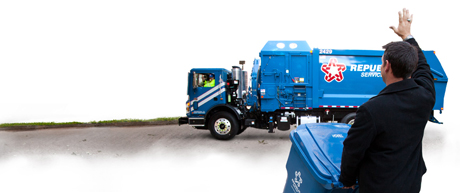
San Jose’s elected officials recently discussed options on how it should manage billing for its garbage services, with some councilmembers arguing that they thought residents should pay higher rates without offering new services.
When it comes the garbage services, residents have two simple requests: 1. Pick up the garbage every week in a reliable manner; 2. Do it in the most cost-effective way possible. Easy enough, right? Well, no. Potentially higher costs for garbage services were the topic under discussion at the last City Council meeting.
In my opinion, cost increases can be avoided by systemic streamlining, and by structuring the payment for services in a way that is more efficient than the status quo.
The council deliberated at length on how to best manage the billing for garbage services, and the following options were discussed: billing would continue to be done internally by the city of San Jose, or externally by either the garbage company or Santa Clara County, via the annual property tax bill. Thirty-three city employees currently manage billing and customer service. Residents can walk into city hall and pay their bill in person, mail a check, have the amount automatically deducted from a checking account or pay online—assuming the resident has a PC; the current software platform does not support Apple devices.
Few cities actually manage this process internally because it is not fiscally optimal. Prior to my tenure, staff brought forward and council unanimously supported the implementation of a software solution that would manage garbage billing in house. This process was originally supposed to cost $5 million and be fully implemented in 12 months. However, it ended up taking 30 months to implement and costs eventually exceeded $15 million.
Even worse, the city borrowed money by issuing commercial paper—similar to a line of credit—to pay for the software implementation. Ugh!
To complicate things further, another company acquired the software provider, and now the specific billing software that the city utilizes is no longer supported. When this is the situation, the city is exposed to greater risk and pain in case of any systematic software failure. Not good, any way you look at it.
When considering possible solutions, one option is to double down and spend an estimated $16 million—actual cost could be even higher—on a new software solution, and maintain the internal billing procedure currently in place. This would allow the 33 employees to keep their positions. But it would also raise garbage collection rates by approximately $14.50 a year for every household.
I could not support this option in good conscience, due to the fact that any incremental cost increase without some additional value to residents is not warranted. Fortunately, the council as a whole voted 7-4 to eliminate internal billing.
Another possible solution would entail adding garbage fees as a line item to property tax bills, as the city currently handles the library parcel tax and sewer fees. This method creates a stable revenue stream for the city, and the streamlined process would be the most efficient way to avoid future rate increases for residents. This is one of those special instances where government is not only the lowest cost solution, but also offers the least amount of risk to the city and residents.
The issue is really about efficiency. Whether it is a tax dollar or a fee dollar, government has a responsibility to be efficient with all remittances. Business processes can and should be streamlined whenever there is an opportunity to avoid increasing costs. For the individual opposed to organizational efficiency in government, I have a gently used abacus and typewriter I could sell real cheap.
